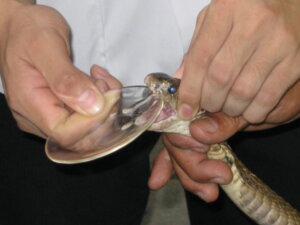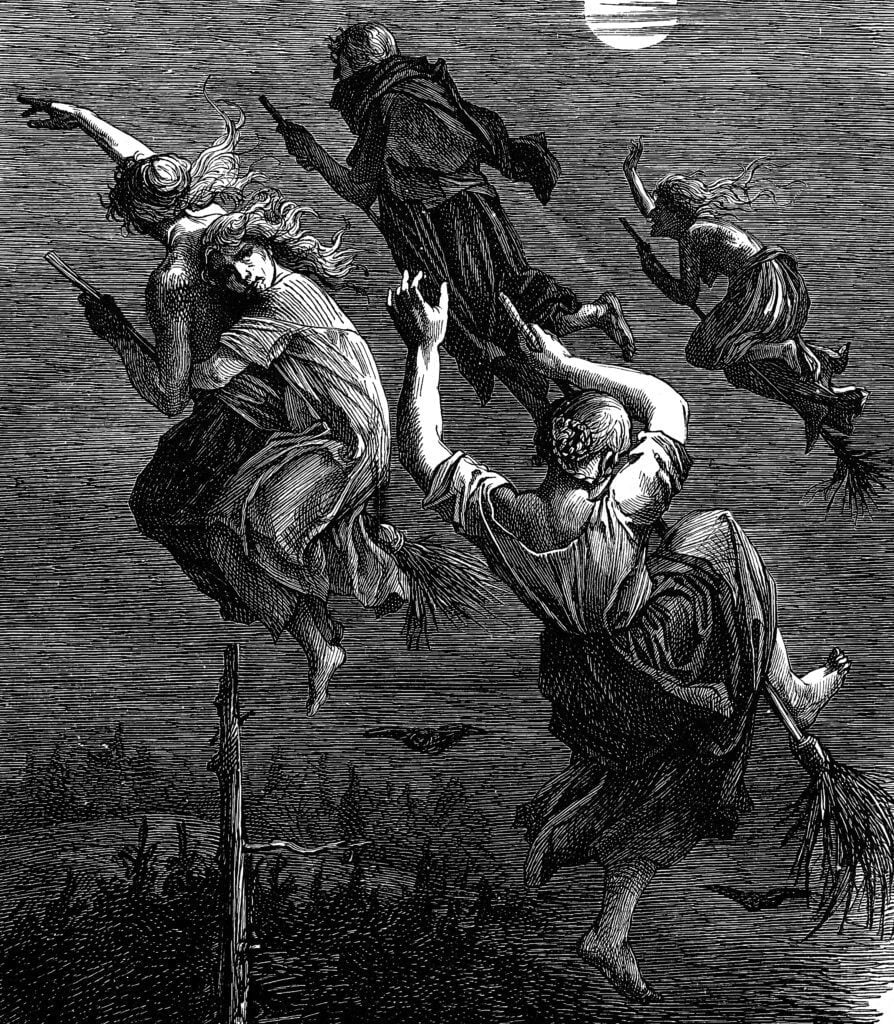Superstitions exist in societies all around the world, and many of them are rooted in cultural traditions that have impacted the way people think and behave for generations. They reflect a lot about our shared hopes and fears and, for many, they are an important part of daily life. When it comes to superstitions about women, they are more than plentiful — and can sometimes (though certainly not always) be rooted in some form of sexist or archaic thinking.
Women the world over have been discriminated against since, well, forever. Consider one of the most famous texts ever written — The Book of Genesis. In this story, the evil of man is rooted in Adam and Eve’s disobedience to God — and, of course, it was Eve who took the first bite of the apple, having given into the temptation of a serpent. Then she shared the apple with Adam, and because God had forbidden this, they were promptly punished.
As an article published at Sweet Briar College puts it, “[The] Book of Genesis has served as the primary source in the West for definitions of gender and morality…. Moreover, this view of Eve, and of women in general, has been insinuated into the culture to such an extent that both men and women believe it defines a natural condition of women. It is a pernicious view and the degree to which it continues to subtly influence in negative ways our perception of women must be constantly born in mind while looking at the images of women in these pages.”
And this is only one example from one set of religious beliefs. There is an entire world out there!
In fact, superstitions about women are so prevalent that they permeate much of our everyday thinking.
To this day, women who embrace their sexuality, are loud or opinionated, or are particularly smart are perceived as threats — and treated as such. For many years in numerous cultures, if a woman deviated from certain social norms she was believed to be working with the Devil himself.
[fm_giphy url=”https://media.giphy.com/media/HbvaeI4Lg0FOw/giphy.gif”]
Interestingly, the British Psychological Society found that superstitions about men are often associated with luck, while superstitions about women are deemed unlucky.
These might not seem like particularly superstitious ideas right off the bat, but the power behind many long-standing superstitions is very real and can have serious repercussions — particularly when it comes to the spreading of reductive ideas about women.
Let’s start with menstruation superstitions…
…of which there are PLENTY.
For instance, in the U.S. and the U.K., people are told not to go camping with menstruating women because they might attract bears.
Meanwhile, in Colombia, they say that women shouldn’t wash or cut their hair while on their period; and in Romania, a menstruating woman can bring death to flowers by simply touching them. Death to flowers!
Then, in India, it’s said that a woman shouldn’t enter a kitchen or cook food for people while menstruating.
This particular aversion to bleeding goes way, way back.
In the Middle Ages, women were banned from attending church if they were bleeding, as it was believed that their blood could curdle milk or mess with the jam-making process. Even today many people think menstrual blood is gross — and cue the tampon tax.
[fm_instagram url=”https://www.instagram.com/p/BynZvOenTMk/”]
These superstitions appear to be rooted in one thing: A fear of the menstruating body.
After all, apparently blood conjures bears, kills flowers, and dirties food.
[fm_instagram url=”https://www.instagram.com/p/BwIN2gihpdT/”]
Some superstitions may be rooted in old-fashioned ideas or biblical texts…
…But that doesn’t make them any less relevant to the modern world.
In 2001, Goran Ivanisevic played Wimbledon and forbade his girlfriend from attending “because he thinks women will bring him bad luck.”
Even sailors have some of their own superstitions about women.
Women aren’t allowed ships!
Women are thought to distract men from their duties. BUT WAIT — nude ladies could still totally hang out on ship decks (hence the topless women we often see on the bow of ships), but that’s only because nude ladies were baring their breasts, which “shamed the stormy seas into calm.” Yes, you read that correctly. Women are a distraction — until their boobs are useful.
Of course, there are some sort of innocuous-sounding superstitions, too:
Like the superstition in Ireland that on leap day, women are finally allowed to propose to men. This is rooted in the myth that St. Brigid once struck a deal with St. Patrick in an effort to balance the gender roles.
It’s funny, though, that this apparently romantic idea of allowing women to do something they should always be able to do essentially prevents women from proposing at other times.
Meanwhile, in Rwanda, women have been discouraged from eating goat meat because it is said to make them grow beards!
[fm_giphy url=”https://media.giphy.com/media/TrEnC5n5XcQlG/giphy.gif”]
Then there is a Canadian superstition that says pregnant women who crave fish should eat it, because if they don’t their babies will be born with a fish-head. But then again, if a pregnant woman eats a weirdly shaped food (what, exactly, qualifies as weirdly?), she might end up having an ugly baby, according to one Korean superstition.
What’s interesting about most of these superstitions is that they tend to place some sort of blame on women. Who knew eating certain foods could be so perilous?
[fm_giphy url=”https://media.giphy.com/media/4MWlalLi2QuG0GiacE/giphy.gif”]
In Vietnam, pregnant women shouldn’t attend weddings…
…as superstition says that this could bring bad luck to the married couple.
The food superstitions don’t stop there:
In Greece, many believe that young, single women should eat the end of a bread loaf in order to ensure that their future mother-in-laws will like them.
[fm_giphy url=”https://media.giphy.com/media/XWqHD5x4NTKzS/giphy.gif”]
“Girls start fighting over who gets to eat the heel from as young as 5 years old,” according to Greek Reporter.
In Malaysia, as reported by The Tempest, women shouldn’t wake up too late or else they’ll never find a husband.
And definitely, don’t look into the mirror at midnight lest you become “ugly.”
[fm_giphy url=”https://media.giphy.com/media/SDvC8bZBRgfZe/giphy.gif”]
Of course, we’d be remiss not to look at the long-standing connection between superstition and witches.
The superstitions surrounding women and witchcraft are longstanding.
[fm_instagram url=”https://www.instagram.com/p/ByrEZdcHdzL/”]
According to Kristen Sollée, author of Witches, Sluts, Feminists: Conjuring the Sex Positive, women who were thought to be witches during the Renaissance were also believed to be in league with the Devil.
For instance, if a woman couldn’t conceive, she’d be labeled a witch.
If she used nasty language, she’d be called a witch. Basically, superstitions were born of the mundane.
[fm_instagram url=”https://www.instagram.com/p/BxLEzNApTGy/”]
Today, though, witches and witchcraft are seeing a surge in popularity, with witchy book publishing on the rise and more people turning to the archetype of the witch for inspiration.
[fm_instagram url=”https://www.instagram.com/p/BvXAWv8B0uB/” hidecaption=true]
In fact, Wicca (even though certainly not every witch is Wiccan) is one of the fastest growing religions in the U.S.
Of course, not all people, especially women, can simply call themselves a witch. In fact, many witches are still hunted to this day.
[fm_instagram url=”https://www.instagram.com/p/BmQRVTKBsQJ/”]
In India, women have been considered to be witches if they threaten men in any way.
According to the Pulitzer Center, “More than 2,500 Indians have been chased, tortured, and killed between 2000 and 2016, according to India’s National Crime Records Bureau… Witch hunts primarily target women and exploit India’s caste system and culture of patriarchy. Men who brand women as dakan, or a witch, capitalize on deeply rooted superstitions and systems built on misogyny and patriarchy to lay blame on females.”
[fm_instagram url=”https://www.instagram.com/p/BycYtURB3Jt/” hidecaption=true]
People have accused women of sorcery if they’re simply growing their own vegetables, living on land that they covet, or if infant mortality in general is high.
Even though many of these women aren’t actual witches (though many practicing witches are good and kind people), they’re blamed for misfortunes anyway.
[fm_instagram url=”https://www.instagram.com/p/BuwW5dhldWK/”]
Of course, we know now that witches are (primarily) women who heal, work with nature, think outside the box, or simply don’t adhere to the strict boxes society wants to put them in.
For many, the thinking and superstitions surrounding women in general can be reclaimed, subverted, and used for empowerment by many women. That is, when they’re not actively being harmed.
[fm_instagram url=”https://www.instagram.com/p/ByBT0SuAgs4/”]





